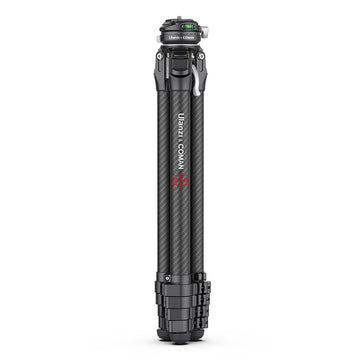A Beginner's Guide to Using Lens Adapters: What You Need to Know
Body
Photography enthusiasts often find themselves in situations where they want to use a lens that is not compatible with their camera. This is where lens adapters come into play. In this beginner's guide, we will explore the ins and outs of using lens adapters, including their benefits, limitations, and how to choose the right one for your needs.

Understanding Lens Adapters
A lens adapter is a device that allows you to mount a lens onto a camera body for which it was not originally designed. This can open up a world of possibilities for photographers, as it enables them to use a wide range of lenses with different focal lengths, apertures, and other characteristics on their camera bodies.
When using a lens adapter, it's important to keep in mind that certain features of the lens, such as autofocus and electronic aperture control, may not work as seamlessly as they would with a native lens. However, with the right techniques and understanding, photographers can still achieve excellent results with adapted lenses.
Choosing the Right Lens Adapter
When selecting a lens adapter, it's crucial to ensure that it is compatible with both the lens and the camera body. Different cameras and lenses have specific mounting systems, so it's essential to choose an adapter that can bridge the gap between the two.
Additionally, some lens adapters come with additional features, such as built-in aperture control or focal length compensation. These can be beneficial for photographers who want more control over their adapted lenses, so it's worth considering these options when making a purchase.
Tips for Using Lens Adapters
Using a lens adapter effectively requires some practice and understanding of the limitations involved. One important tip is to familiarize yourself with manual focusing, as some adapted lenses may not support autofocus on certain camera bodies.
It's also essential to be mindful of the potential impact on image quality when using a lens adapter. While many adapted lenses can produce stunning results, some may exhibit issues such as vignetting or reduced sharpness, especially when used at extreme apertures.
Exploring Creative Possibilities
One of the most exciting aspects of using lens adapters is the creative freedom they offer. By pairing different lenses with your camera body, you can experiment with unique focal lengths, perspectives, and optical characteristics that may not be readily available with native lenses.
For example, using a vintage manual lens with a modern digital camera can result in a distinct aesthetic that adds a timeless quality to your images. Similarly, adapting specialty lenses, such as tilt-shift or macro lenses, can open up new avenues for creative expression.
Ultimately, understanding how to use lens adapters effectively can significantly expand your photographic capabilities and inspire new creative endeavors. By embracing the versatility and potential of adapted lenses, photographers can elevate their craft and capture truly exceptional images.







Comments